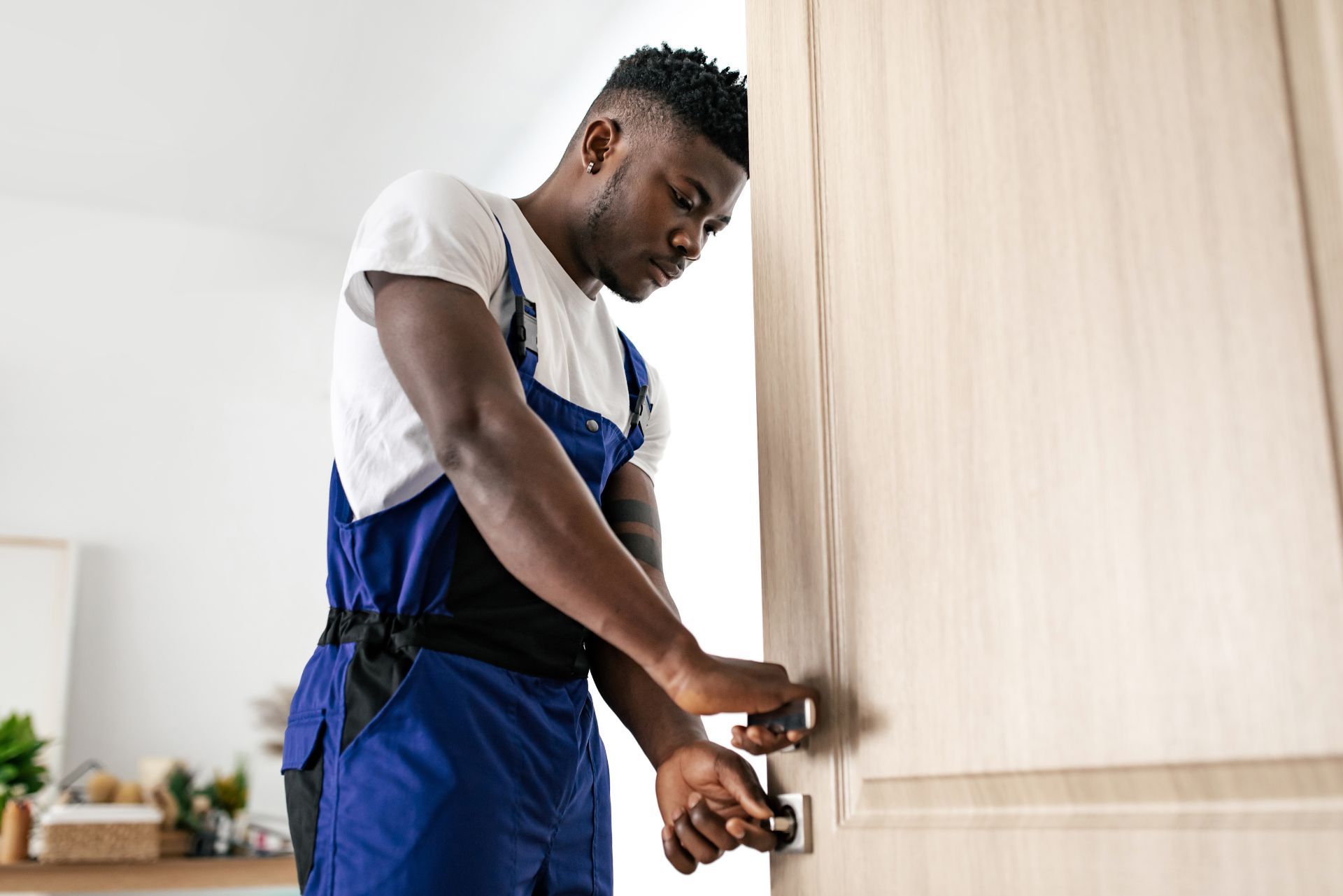Locksmiths play a crucial role in ensuring the security of homes, businesses, and vehicles. However, like any profession, locksmithing comes with its own set of risks and challenges. In Florida, locksmiths are encouraged to invest in insurance to protect themselves and their businesses. This article will delve into the various aspects of locksmith insurance in Florida, including types of coverage, legal requirements, and tips for selecting the right policy.
Understanding Locksmith Insurance
Locksmith insurance is designed to protect professionals in the locksmithing industry from various risks associated with their work. This insurance can cover a range of liabilities, including property damage, bodily injury, and professional errors. Understanding the different types of coverage available is essential for locksmiths looking to safeguard their business.
Types of Coverage
There are several types of insurance coverage that locksmiths in Florida should consider. Each type serves a specific purpose and can provide essential protection against potential risks.
- General Liability Insurance: This is the most basic form of insurance that covers bodily injury and property damage claims. For example, if a locksmith accidentally damages a client's property while performing a service, this insurance can help cover the costs.
- Professional Liability Insurance: Also known as errors and omissions insurance, this coverage protects locksmiths against claims of negligence or inadequate work. If a client claims that the locksmith's services led to a security breach, this insurance can help cover legal fees and settlements.
- Commercial Auto Insurance: Many locksmiths use vehicles to travel to job sites. Commercial auto insurance provides coverage for vehicles used for business purposes, protecting against accidents and damages that may occur while on the job.
Importance of Insurance for Locksmiths
Having the right insurance is not just a legal requirement; it is also a vital aspect of running a successful locksmith business. Insurance provides peace of mind, allowing locksmiths to focus on their work without the constant worry of potential financial ruin due to unforeseen incidents.
Moreover, clients are more likely to trust a locksmith who is insured. It demonstrates professionalism and a commitment to quality service, which can help build a positive reputation in the community. In an industry where trust and reliability are paramount, having insurance can set a locksmith apart from competitors who may not prioritize such protections.
Additionally, locksmith insurance can also encompass coverage for tools and equipment, which are essential for daily operations. Many locksmiths invest significant amounts in high-quality tools, and having coverage for theft or damage to these items can prevent substantial financial loss. This aspect of insurance not only protects the locksmith's investment but also ensures that they can continue to provide services without interruption, even in the face of unexpected challenges.
Furthermore, as the locksmithing industry evolves with new technologies and security systems, staying updated on insurance options is crucial. Emerging risks, such as cyber liability due to digital lock systems, may necessitate additional coverage. By regularly reviewing and adjusting their insurance policies, locksmiths can ensure they are adequately protected against the unique challenges of their profession.

Legal Requirements for Locksmiths in Florida
In Florida, locksmiths must adhere to specific legal requirements to operate legally. Understanding these regulations is crucial for anyone looking to start a locksmith business in the state.
Licensing Requirements
Florida requires locksmiths to obtain a license from the Department of Agriculture and Consumer Services. This process includes submitting an application, undergoing a background check, and providing proof of liability insurance. The licensing ensures that locksmiths meet certain standards of professionalism and expertise. Additionally, applicants must demonstrate a minimum level of experience in the locksmithing field, which may involve completing an apprenticeship or working under a licensed locksmith for a specified duration. This requirement not only protects consumers but also helps maintain the integrity of the locksmith profession within the state.
Insurance Requirements
While there is no specific law mandating locksmiths to carry insurance, having general liability insurance is highly recommended. Many clients will request proof of insurance before hiring a locksmith, making it a practical necessity for those in the industry. Moreover, insurance can protect locksmiths from potential lawsuits resulting from property damage or personal injury claims that may arise during the course of their work. In an industry where trust and reliability are paramount, being insured can significantly enhance a locksmith's reputation and instill confidence in potential clients, thereby expanding their customer base.
Continuing Education and Training
In addition to licensing and insurance, locksmiths in Florida are encouraged to pursue continuing education and training. This can include attending workshops, seminars, or courses that cover the latest technologies and techniques in locksmithing. With the rapid advancement of security systems, including electronic locks and smart home technologies, staying updated is essential for locksmiths to remain competitive. Many professional organizations offer certifications that can further validate a locksmith's skills and knowledge, making them more appealing to consumers who are increasingly seeking qualified professionals for their security needs.
Choosing the Right Insurance Policy
With numerous insurance providers and policies available, selecting the right insurance can be overwhelming. However, there are several key factors to consider that can simplify the decision-making process.
Assessing Business Needs
Every locksmith business is unique, and understanding specific needs is vital when choosing an insurance policy. Consider the size of the business, the types of services offered, and the potential risks involved. For instance, a locksmith who specializes in high-security installations may require more comprehensive coverage than one who primarily offers basic lock services. Additionally, it is important to evaluate the geographical area where the business operates, as certain regions may have higher crime rates or specific regulations that could influence the type of coverage needed. For example, operating in a city with a high incidence of break-ins may necessitate more robust liability insurance to protect against potential claims arising from theft-related incidents.
Comparing Insurance Providers
Not all insurance providers are created equal. It is essential to research and compare different companies to find one that offers the best coverage at a competitive price. Look for providers that specialize in insurance for tradespeople or small businesses, as they will have a better understanding of the unique risks associated with locksmithing. Furthermore, consider seeking recommendations from fellow locksmiths or industry associations, as personal experiences can provide valuable insights into the reliability and responsiveness of various insurers. Online reviews and ratings can also be helpful in gauging customer satisfaction and the overall reputation of an insurance provider.
Reading the Fine Print
Before signing any insurance policy, it is crucial to read the terms and conditions carefully. Pay attention to exclusions, limits, and deductibles, as these factors can significantly impact the level of protection offered. If anything is unclear, do not hesitate to ask the insurance agent for clarification. Additionally, it can be beneficial to review the claims process outlined in the policy. Understanding how to file a claim, the necessary documentation required, and the expected timeline for resolution can help ensure that you are prepared in the event of an incident. Being proactive in this area can save you time and stress later on, allowing you to focus more on running your locksmith business effectively.
Cost of Locksmith Insurance in Florida
The cost of locksmith insurance can vary widely based on several factors, including the size of the business, the coverage options selected, and the locksmith's claims history. Understanding these factors can help locksmiths budget for their insurance needs.
Factors Influencing Insurance Costs
Several key factors can influence the cost of locksmith insurance:
- Business Size: Larger businesses typically face higher premiums due to increased risk exposure.
- Coverage Limits: Higher coverage limits usually result in higher premiums. Locksmiths should balance their need for coverage with their budget.
- Claims History: A history of claims can lead to higher premiums, as insurers may view the locksmith as a higher risk.
Average Premiums
On average, locksmiths in Florida can expect to pay anywhere from $500 to $1,500 annually for general liability insurance. However, this figure can vary based on the factors mentioned above. It is advisable to obtain quotes from multiple providers to find the best rate.
In addition to general liability insurance, locksmiths may also consider other types of coverage, such as professional liability insurance, which protects against claims of negligence or failure to perform professional duties. This is particularly important for locksmiths who provide services that require a high level of expertise, as any errors could lead to significant financial losses for clients. Moreover, many locksmiths opt for commercial auto insurance if they use vehicles for their business operations, which adds another layer of expense but is crucial for protecting their assets on the road.
Furthermore, locksmiths should be aware that certain locations in Florida may have unique risks associated with them, such as higher crime rates or natural disaster vulnerabilities, which can also impact insurance costs. For example, locksmiths operating in coastal areas may need to consider additional coverage for hurricane-related damages. By understanding the specific risks associated with their location and business model, locksmiths can make more informed decisions about the types and amounts of insurance they require, ensuring they are adequately protected without overspending.
Common Claims in the Locksmith Industry
Understanding the types of claims that commonly arise in the locksmith industry can help professionals better prepare and protect themselves. Here are some of the most frequent claims locksmiths may encounter.
Bodily Injury Claims
Accidents can happen, and locksmiths may inadvertently cause injury to clients or bystanders while performing their work. For example, a locksmith may accidentally cut themselves or cause a client to trip over equipment. Bodily injury claims can be costly, making liability insurance essential. Additionally, the use of tools such as drills and saws poses inherent risks, and even minor lapses in attention can lead to serious injuries. It's crucial for locksmiths to maintain a safe working environment and to communicate clearly with clients about potential hazards that may arise during the job.
Property Damage Claims
Locksmiths often work in clients' homes or businesses, which increases the risk of property damage. Whether it's damaging a door frame while installing a lock or accidentally spilling a chemical used for cleaning, property damage claims can lead to significant financial losses without proper insurance coverage. Furthermore, the intricacies of older locks and doors can present unique challenges, and locksmiths must be cautious to avoid causing unintended damage. Understanding the construction of various door types and the materials used can help mitigate these risks and ensure a smoother job execution.
Professional Errors
Errors and omissions can occur in any profession, and locksmithing is no exception. If a locksmith fails to properly install a lock, leading to a security breach, the client may seek compensation for damages. Professional liability insurance can help cover the costs associated with such claims. Moreover, the locksmith industry is constantly evolving, with new technologies and security systems being introduced regularly. Staying updated on the latest advancements and best practices is essential for locksmiths to minimize the risk of errors and to provide clients with the highest level of service. Continuous education and training can significantly reduce the likelihood of mistakes, ultimately protecting both the locksmith and their clients.

Benefits of Having Locksmith Insurance
Investing in locksmith insurance provides numerous benefits that can enhance the overall success and sustainability of a locksmith business.
Financial Protection
The most apparent benefit of locksmith insurance is financial protection. In the event of a claim, insurance can cover legal fees, settlements, and other associated costs, preventing significant financial strain on the business. This financial cushion is particularly important in an industry where unexpected incidents, such as property damage or theft, can occur at any time. For instance, if a locksmith accidentally damages a client's property while performing a service, the costs of repairs can quickly add up. With the right insurance policy, these expenses can be mitigated, allowing the locksmith to maintain their financial health and continue operations without interruption.
Enhanced Credibility
Clients are more likely to trust an insured locksmith. Having insurance demonstrates professionalism and a commitment to quality service, which can lead to increased business opportunities and client loyalty. Additionally, being insured can set a locksmith apart from competitors who may not have coverage, giving potential clients peace of mind that they are working with a responsible and reliable service provider. This enhanced credibility can be particularly beneficial in a market where word-of-mouth referrals and online reviews play a significant role in attracting new customers. A locksmith who can showcase their insurance coverage may find it easier to build a positive reputation and foster long-term relationships with clients.
Peace of Mind
Knowing that there is coverage in place for potential risks allows locksmiths to focus on their work without the constant worry of what could go wrong. This peace of mind can lead to improved job performance and customer satisfaction. Furthermore, having insurance can also encourage locksmiths to take on more challenging projects or expand their service offerings, knowing that they are protected against unforeseen circumstances. For example, a locksmith might feel more confident in accepting a high-stakes job that involves securing a commercial property, knowing that their insurance will cover any potential mishaps. This sense of security not only enhances the locksmith's professional growth but also contributes to a more dynamic and innovative approach to their business operations.
Frequently Asked Questions
As locksmiths consider their insurance options, several common questions often arise. Here are some of the most frequently asked questions regarding locksmith insurance in Florida.
Is locksmith insurance mandatory in Florida?
While locksmith insurance is not legally required in Florida, it is highly recommended. Many clients will request proof of insurance before hiring a locksmith, making it a practical necessity for those in the industry.
How much insurance coverage do locksmiths need?
The amount of insurance coverage needed can vary based on the locksmith's business size, services offered, and potential risks. It is advisable to assess specific needs and consult with an insurance agent to determine the appropriate coverage limits.
Can locksmiths get insurance for their tools and equipment?
Yes, locksmiths can obtain coverage for their tools and equipment through a policy known as inland marine insurance. This coverage protects tools and equipment from theft, loss, or damage while on the job.
Conclusion
Locksmith insurance is an essential component of running a successful locksmith business in Florida. By understanding the types of coverage available, legal requirements, and the importance of insurance, locksmiths can make informed decisions that protect their livelihoods. Investing in the right insurance not only provides financial protection but also enhances credibility and peace of mind, allowing locksmiths to focus on delivering quality service to their clients.

Contact Us


